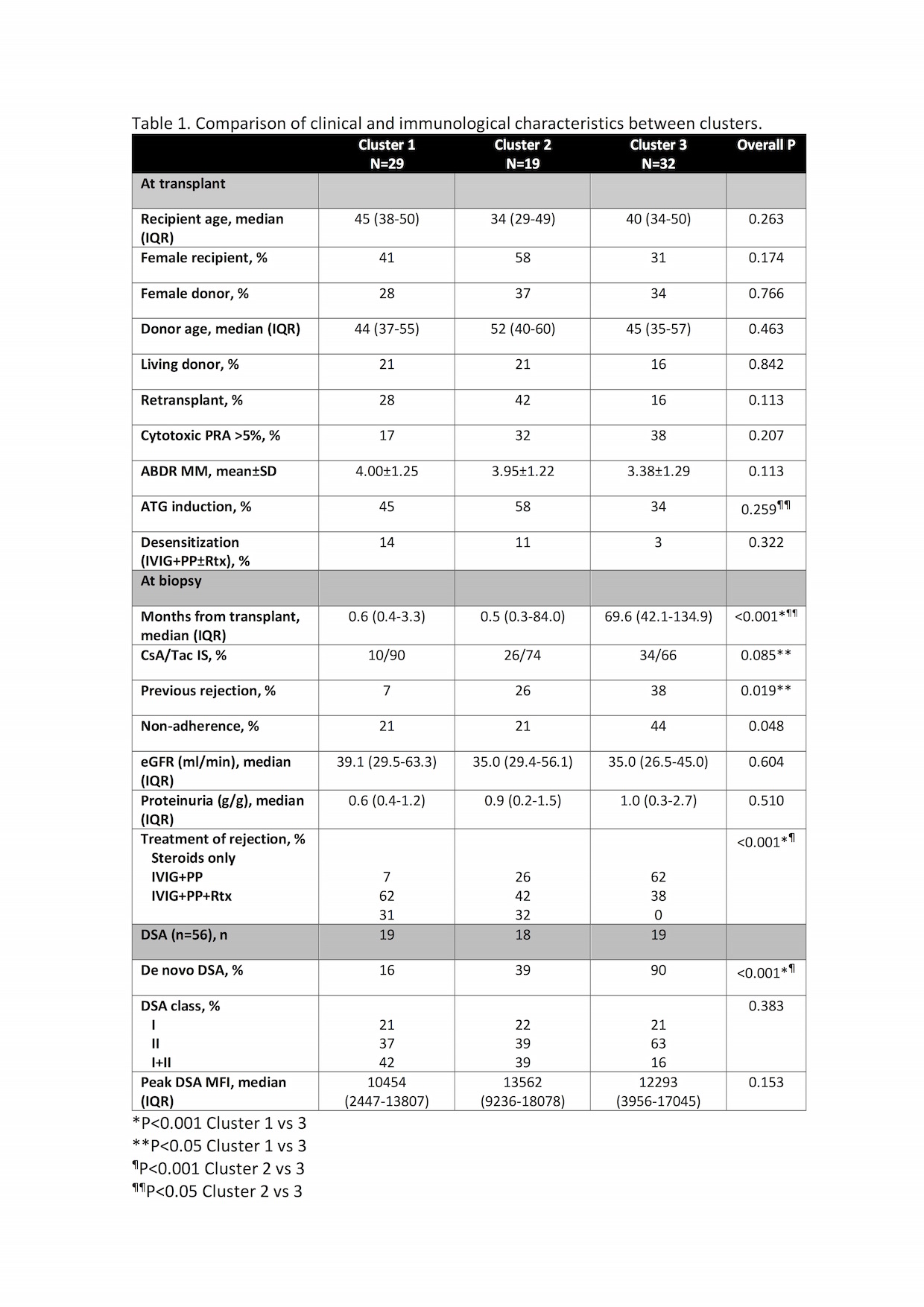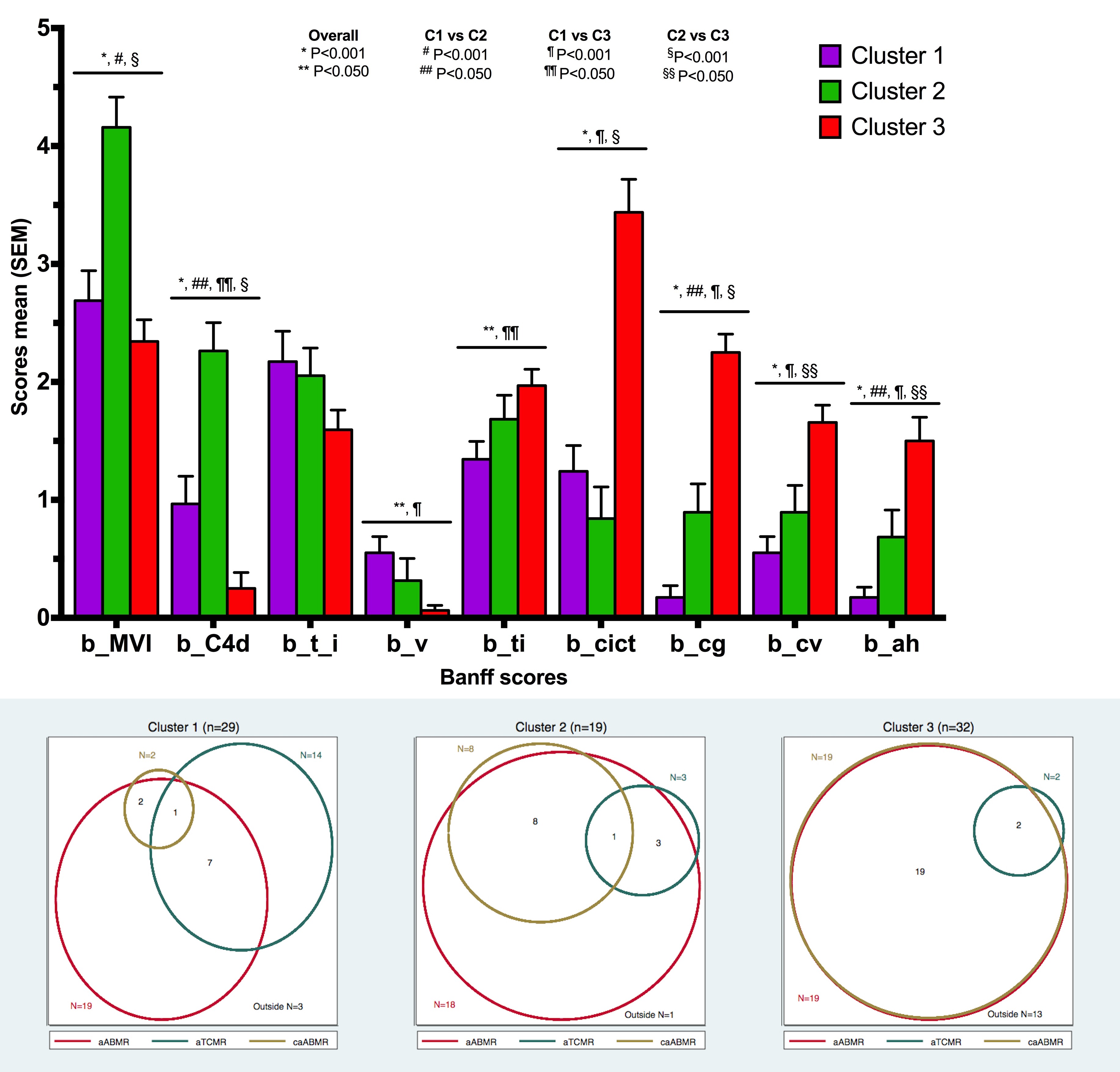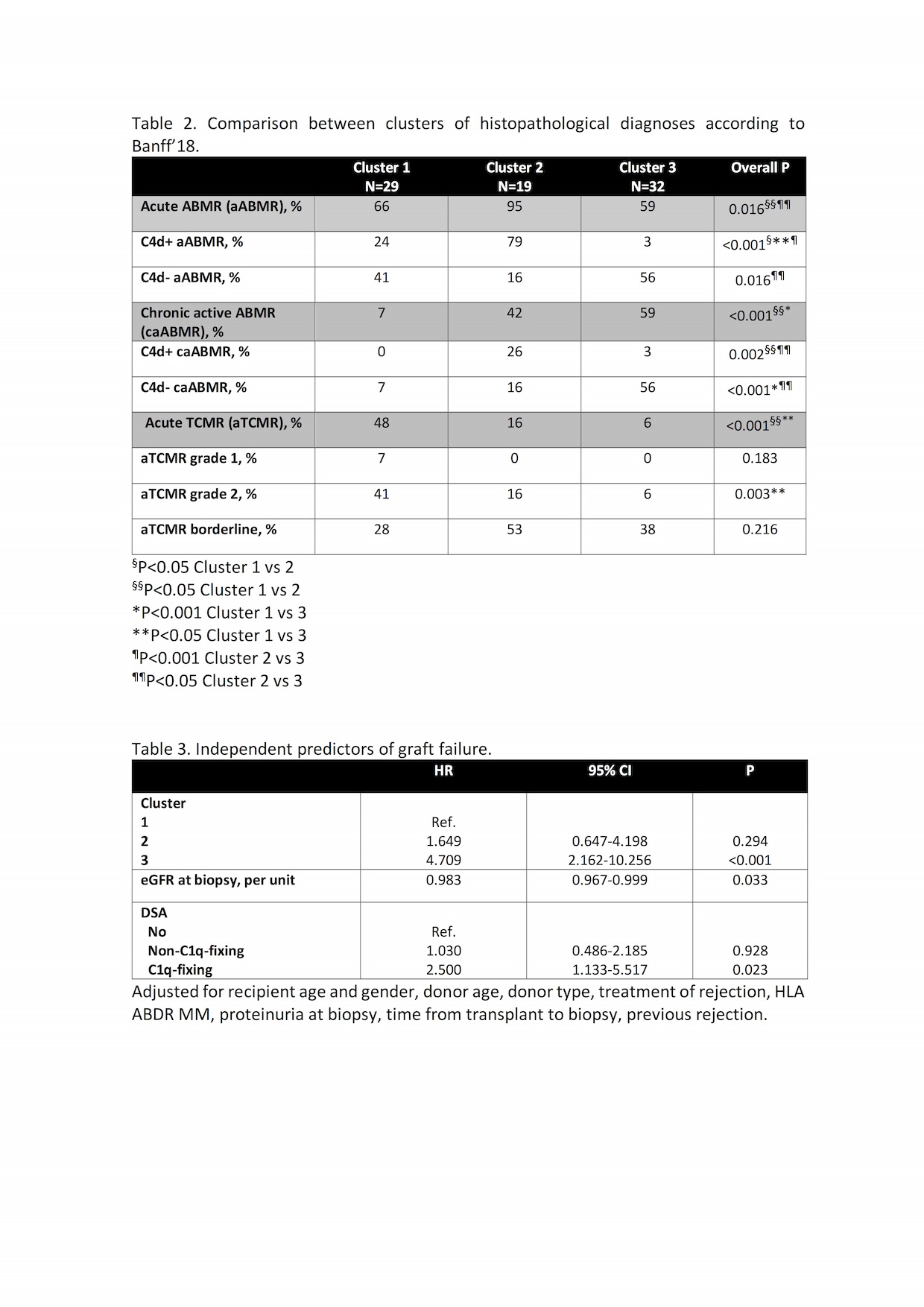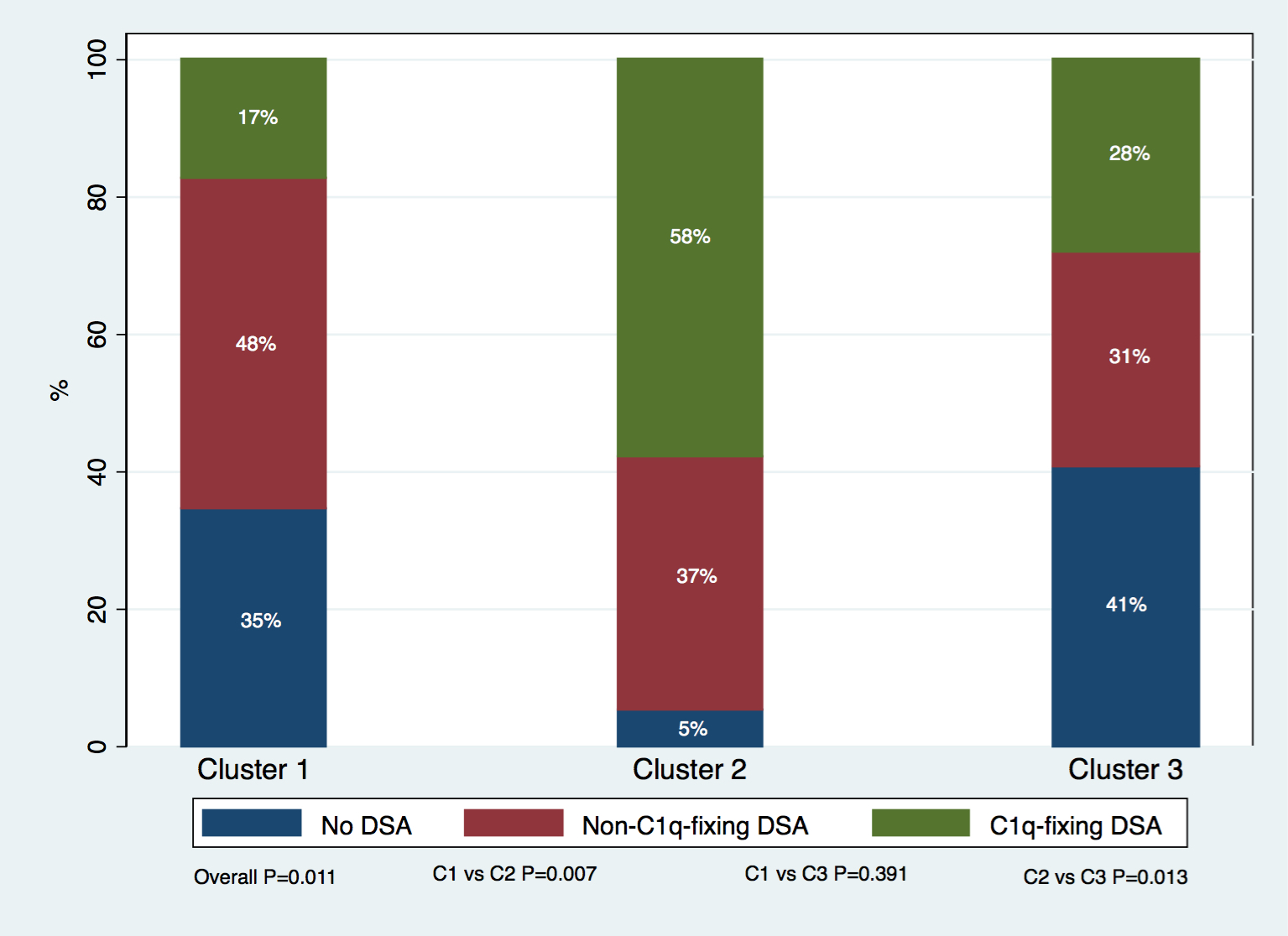Cluster Analysis of Microvascular Inflammation in Indication Biopsies Unveils Distinct Pathological and Immunological Phenotypes with Prognostic Implications
1Centro Hospitalar do Porto, Porto, Portugal, 2IPST_Porto, Porto, Portugal
Meeting: 2019 American Transplant Congress
Abstract number: D98
Keywords: Alloantibodies, Histology, Rejection
Session Information
Session Name: Poster Session D: Kidney Acute Antibody Mediated Rejection
Session Type: Poster Session
Date: Tuesday, June 4, 2019
Session Time: 6:00pm-7:00pm
 Presentation Time: 6:00pm-7:00pm
Presentation Time: 6:00pm-7:00pm
Location: Hall C & D
*Purpose: We aimed to define distinct pathological and immunological clusters of 80 cases of MVI diagnosed in indication biopsies and evaluate their prognostic implications.
*Methods: The correlations between elementary histological lesions and DSA status were evaluated by Spearman correlation and clustering was performed based on the values of dissimilarities. Hence, 3 clusters were defined.
*Results:
*Conclusions: The 3 clusters had clearly distinct phenotypes but similar graft function at biopsy. Importantly, significant stepwise differences in graft survival were detected. MVI cases occurring early post-transplant had a higher association of TCMR, with lower humoral injury scores and frequency of C1q-DSA (Cluster 1). Cluster 2 defined MVI cases with purer and stronger ABMR scores and more C1q-DSA detection. Finally, cluster 3 corresponded to late cases of caABMR, with incomplete phenotypes of rejection and an increase impact of non-adherence and de novo DSA emergence being noticeable.
To cite this abstract in AMA style:
Malheiro J, Silva A, Santos S, Tafulo S, Martins L, Dias L, Castro-Henriques A. Cluster Analysis of Microvascular Inflammation in Indication Biopsies Unveils Distinct Pathological and Immunological Phenotypes with Prognostic Implications [abstract]. Am J Transplant. 2019; 19 (suppl 3). https://atcmeetingabstracts.com/abstract/cluster-analysis-of-microvascular-inflammation-in-indication-biopsies-unveils-distinct-pathological-and-immunological-phenotypes-with-prognostic-implications/. Accessed February 22, 2026.« Back to 2019 American Transplant Congress





